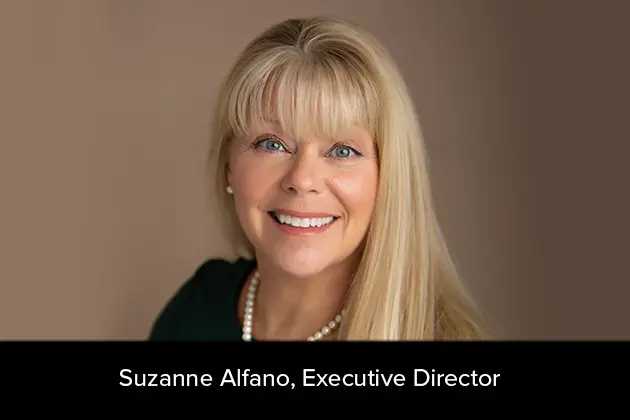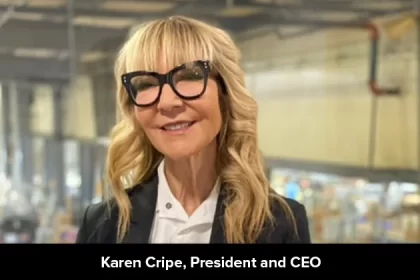The world of non-profit organizations is a vital part of our society, dedicated to making a positive impact on various aspects of our lives. From education to healthcare, and from environmental conservation to disaster relief, non-profit organizations play a crucial role in addressing the needs of communities and promoting social change. We would like to introduce the Canadian Fire Alarm Association, a not-for-profit organization that has been making a significant difference in the field of fire safety and protection for over five decades.
The Canadian Fire Alarm Association was founded in 1973 and incorporated nationally as a Not-For-Profit Corporation on November 25, 1977. The Association began as a manufacturers’ association. Over the years it gradually grew and developed. Much work was done by the Founding Members in promoting the effective use of fire alarm systems across Canada. There were also efforts to establish and influence codes and standards, and to develop and deliver education programs aimed at helping installers and service technicians become competent and proficient to help improve the quality, effectiveness, and reliability of fire alarm systems.
The CFAA developed its Fire Alarm Technology Education Program over time and connected with colleges across Canada to expand its availability. Due to promotion and advocacy efforts within the regulatory community, particularly in Manitoba and Ontario, CFAA champions influenced the enactment of legislation that resulted in requirements for technicians working on fire alarm systems to have completed a training program that is “acceptable to the Fire Marshal” and the CFAA Fire Alarm Technology Program was first recognized in 1998. Today, this CFAA program is widely accepted by most jurisdictions across Canada.
In 2016, the CFAA expanded its Fire Alarm Technology Program to include a proctored Theory Exam, along with a hands-on Practical Exam, that is required after completion of the five core courses. Enhancements to the program also included the introduction of Continuing Education requirements that must be taken each year as part of a fire alarm technician’s renewal of their registration. In recent years CFAA began a digital transformation of this program and now all CFAA core courses, exams, and continuing education can be taken online, in addition to in-person options.
Last year the Canadian Fire Alarm Association celebrated its 50th anniversary. They are proud of their accomplishments over the years to help improve the quality, effectiveness, and reliability of fire alarm systems that play a key role in fire protection aimed at reducing injuries, deaths, and property losses in Canada.
About Suzanne Alfano
Suzanne Alfano is the Executive Director of the Canadian Fire Alarm Association (CFAA). Her educational background is in electrical and electronic engineering, along with a Master of Business Administration degree. Suzanne has a unique 30-year plus background in association management, with a focus on fire and electrical safety. She has worked for various associations in Canada and the USA in technical management, consulting, and leadership roles. Her experience also includes advocating for legislative and regulatory requirements that support industry and public safety.
As an Association leader, what do you consider to be your biggest struggle?
Leading and growing a small non-profit Association such as the CFAA does require a sense of entrepreneurial spirit and business skills. One significant struggle is the limited resources as a small NFP to fulfill our vision “to be recognized nationally as the definitive resource for fire alarm-related information, education, qualifications, expertise, and industry support, with active chapters throughout Canada”. We are looking at creative ways to address this challenge via our volunteers and hiring new staff and student help.
Who does the Canadian Fire Alarm Association serve and how do your services work?
CFAA serves its members and stakeholders who comprise fire alarm equipment manufacturers, fire alarm service companies, fire and life safety officials, building owners and property managers, insurance companies, etc. We also serve the public as fire and life safety professionals who are responsible for inspecting, testing, and maintenance of fire alarm systems.
CFAA also provides training and continuing education to fire alarm technicians and others across Canada. We register, or more commonly known as certify, fire alarm technicians and verify that they have the education and credentials to perform skilled work on fire alarm systems.
What approach do you take to promote collaboration between fire alarm technicians, fire prevention officers and property managers?
CFAA provides training to these stakeholder groups. We also do outreach and publish our Journal magazine and create podcasts every two weeks on topics of interest. We collaborate and network together at CFAA and other industry events. Our large Board of Directors is comprised of a broad base of CFAA’s membership from across Canada with various skills that help lead and guide our industry in Canada. We also help manage complaints from fire officials and the public. CFAA has a discipline policy and will take disciplinary action against member companies and/or fire alarm technicians when warranted.
CFAA’s Code of Ethics is an important part of the values that our Association stands for. We ask all members and technicians to adhere to the CFAA Code of Ethics when they join our Association and also reaffirm each year when they renew their membership or registration. It’s a commitment to our beliefs as an industry and building a fire safety culture among our CFAA community and the public at large.
In what ways has the company served as the definitive resource for fire alarm-related information and support throughout Canada?
The CFAA Fire Alarm Technology Program was established more than 44 years ago and is the only national program to train and register/certify fire alarm technicians in Canada. We have over 3900 fire alarm technicians and trainees currently. We have 18 Education Partners representing Canadian public and private colleges that have fire protection programs and offer the CFAA Fire Alarm Technology Education Program.
CFAA members and staff participate in many federal, provincial, and municipal Fire Code Committees and more than 25 Underwriters’ Laboratories of Canada (ULC) Committees, covering the installation, inspection, testing, and maintenance of fire alarm systems and their integration with other building systems. We train thousands of people each year on all aspects of fire alarm systems, including new technologies.
Your mission is to maximize the effectiveness of fire alarm systems in Canada. What have you been doing to accomplish that?
We advocate for the harmonization of building, fire, and electrical codes across all 13 provinces and territories, and the swift adoption of these codes to help ensure the latest safety requirements are adopted into law. These new codes and standards will also permit the latest technologies to be used and installed, because in some cases, the old codes and standards can hinder the use of new and improved technologies. We are also advocating for the national recognition of CFAA’s Registered Fire Alarm Technician credentials to be accepted by all jurisdictions across Canada.
CFAA has plans to expand and enhance our CFAA Fire Alarm Technology Program in the future. Currently, we are measuring our readiness to be the first Association globally to seek accreditation of our fire alarm technician program to ISO/IEC 17024: Conformity assessment – General requirements for bodies operating certification of persons.
CFAA’s vision is to be recognized nationally as the definitive resource for fire alarm-related information, education, qualifications, expertise, and industry support, with active chapters throughout Canada. The CFAA Fire Alarm Technology Program will be expanded, and the Association has partnered with 18 colleges across Canada to increase its availability.
In recent years, we have begun a digital transformation of our education program, and now all CFAA core courses, exams, and continuing education can be taken in person or live online. We continue to expand our online course options and develop new courses and content each year. In 2023, we had over 2700 attendees at our live technical seminar events, with a total of over 43,000 hours of CFAA training taken by fire and life safety professionals.
Being a leader, how do you foster a culture of collaboration within your teams and workflows? What attributes do you look for while building your team?
Honesty, solid work ethic, and kindness. We work in an industry where the fire and life safety of people and property is at stake. We don’t take that responsibility lightly and encourage like-minded people that share our safety culture to join one of our Chapters or Committees and get involved.
Looking ahead, what are the company’s plans and aspirations for further protecting the life and property of Canadians?
- Expanding our digital capabilities through the use of AI training tools, a new website and Association Management System and hybrid training options.
- Improving and expanding our CFAA Fire Alarm Technology program and offering it online in both official languages of Canada – English and French.
- Advocating for the harmonization of building, fire and electrical codes and standards that pertain to fire alarm systems and their adoption into law.
- Advocating for regulation requiring CFAA Registered Fire Alarm Technicians as qualified personnel to perform work on fire alarm systems across Canada.
Young and emerging entrepreneurs who are about to embark on their business journey?
The fire and life safety industry needs you! There is a shortage of fire alarm technicians across Canada and elsewhere in the world. Pursuing a career in this field will be rewarding – both in helping to protect people and property from fire and from a job security perspective. And with industry experience, you could create your own business in the fire and life safety field. There are many opportunities in our growing industry.
Our mission and vision drive us to work for the benefit and safety of all Canadians.










